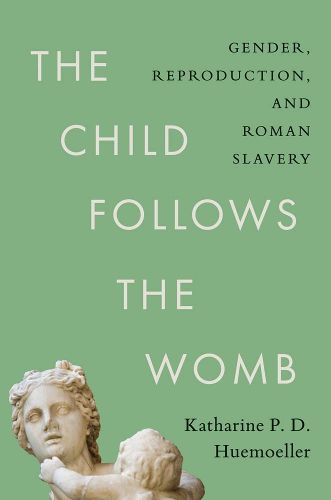Readings Newsletter
Become a Readings Member to make your shopping experience even easier.
Sign in or sign up for free!
You’re not far away from qualifying for FREE standard shipping within Australia
You’ve qualified for FREE standard shipping within Australia
The cart is loading…






A new and incisive exploration of female slavery and reproduction in ancient Rome
One of ancient Rome's most significant legacies is a legal framework for hereditary slavery. Under the Roman principle that would come to be known as partus sequitur ventrem (the offspring follows the womb), enslaved women bore enslaved children regardless of the identity of the child's father. For centuries, across the globe, this legal doctrine was invoked to justify control over enslaved women's reproductive labor.
This is the first book to examine the development and practice of the partus principle in its original Roman context, tracing the lives of five women subject to different forms of corporal control, from coerced reproduction to concubinage to forced marriage. These women's stories-recovered from fragments of papyrus, stone monuments, wooden tablets, and more-reveal the diverse ways that slaveholders used the partus principle to their advantage. Offering an intimate, nuanced account of the sexual and reproductive dimensions of slavery across the vast Roman Empire, Katharine P. D. Huemoeller reveals the particularities of female enslavement in the Roman world and the long history of reproductive injustice.
$9.00 standard shipping within Australia
FREE standard shipping within Australia for orders over $100.00
Express & International shipping calculated at checkout
Stock availability can be subject to change without notice. We recommend calling the shop or contacting our online team to check availability of low stock items. Please see our Shopping Online page for more details.
A new and incisive exploration of female slavery and reproduction in ancient Rome
One of ancient Rome's most significant legacies is a legal framework for hereditary slavery. Under the Roman principle that would come to be known as partus sequitur ventrem (the offspring follows the womb), enslaved women bore enslaved children regardless of the identity of the child's father. For centuries, across the globe, this legal doctrine was invoked to justify control over enslaved women's reproductive labor.
This is the first book to examine the development and practice of the partus principle in its original Roman context, tracing the lives of five women subject to different forms of corporal control, from coerced reproduction to concubinage to forced marriage. These women's stories-recovered from fragments of papyrus, stone monuments, wooden tablets, and more-reveal the diverse ways that slaveholders used the partus principle to their advantage. Offering an intimate, nuanced account of the sexual and reproductive dimensions of slavery across the vast Roman Empire, Katharine P. D. Huemoeller reveals the particularities of female enslavement in the Roman world and the long history of reproductive injustice.